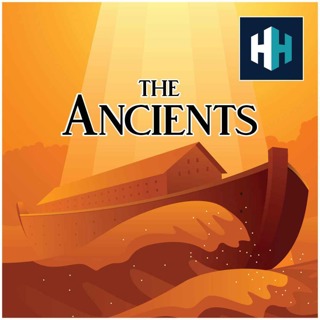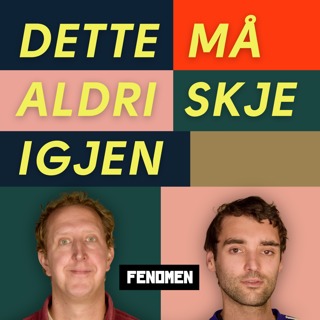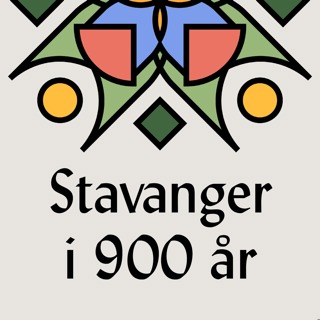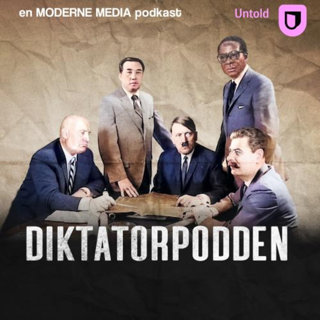
Songlines: Australia's Book of Genesis
What the Book of Genesis is to the Hebrew Bible and the Christian Old Testament, songlines are to Indigenous Australians. Epic tales of desire, pursuit, shape-shifting spirits, strength and family ties, these are stories of the land, communicated only by a handful of elders. Today, Tristan is joined by Margo Neale, lead of the "Songlines: Tracking The Seven Sisters" exhibition, which is making its European debut at The Box in Plymouth till February 2022. Not only is this an art exhibition, but also a science and history exhibition, encouraging people to engage with stories that are thousands of years old and that tell us how to look after ourselves and the planet.If you’re enjoying this podcast and looking for more fascinating Ancient content, then subscribe to our Ancient History Thursday newsletter here.Music:Earth Awakens - Jon Bjork Hosted on Acast. See acast.com/privacy for more information.
12 Des 202156min

Homosexuality & Ancient Greece
Frederick the Great, Marie Antoinette and Oscar Wilde. Each of them have talked about, or been talked about in terms of, Ancient Greek ideas of homosexual love. From men taking on young apprentices, to Sappho’s yearning poetry, the Ancient Greek traditions have long been called upon in conversation as a background to contemporary celebrations of love between members of the same sex, but what is the truth to these stories. We are thrilled to welcome Alastair Blanshard, Paul Eliadis Chair of Classics and Ancient History at the University of Queensland, back to the Ancients to talk us through the concept and truth of Greek love, and its ripples through history. Hosted on Acast. See acast.com/privacy for more information.
9 Des 202147min

The Bronze Age Burials at Stonehenge
Today we’re talking all about science, Stonehenge and what we know about a massive migration into Britain at the start of the Bronze Age some 4,500 years ago: the Steppe migration. For years the details of this incredibly important event have been hotly-debated. But recently, a huge new study has analysed the remains of several hundred individuals buried in Britain and dating to this time period, hoping to uncover more about the nature of this migration. Among the remains that were studied included a series of bronze age burials discovered around Stonehenge. So what did the results of the study reveal? How did this migration affect the Neolithic British population that already inhabited this island? And how did these new people perceive ancient monuments such as Stonehenge? To talk through the study and its results, with a particular focus on certain bronze age burials around Stonehenge, Dr Selina Brace returned to the show. An ancient DNA specialist, Selina works at the Natural History Museum and previously appeared on the Ancients podcast for the hit episode ‘Cheddar Man: Science and the Skeleton’. Hosted on Acast. See acast.com/privacy for more information.
5 Des 202139min

The Origins of Life on Earth
Today we’re going back to the beginning – no Romans, Celts, Egyptians or Macedonians in sight. We’re going much further back, covering billions of years of prehistory as we look at the emergence of life on Earth. From the rise of the earliest microscopic membranes to the arrival of the dinosaurs.To talk through this massive topic, Tristan was joined by Henry Gee, a palaeontologist, evolutionary biologist and senior editor of the science journal Nature. Henry is also the author of a new book: A (Very) Short History of Life on Earth. Prepare to be blown away, as Henry expertly narrates you through several billion years of history in just under 90 minutes.If you’re enjoying this podcast and looking for more fascinating Ancient content, then subscribe to our Ancient History Thursday newsletter here.Music:The Beginning - Jessica Jones Hosted on Acast. See acast.com/privacy for more information.
2 Des 20211h 24min

Vindolanda's 2021 Excavation
Situated roughly one mile south of Hadrian’s Wall is one of the great jewels of Roman and early medieval archaeology: Vindolanda. Over the past 50 years, annual excavations at this site have revealed incredible amounts of new information. Information that has not only shone more light on the site’s history, but also on the minutiae of everyday life for those people who lived on this north western frontier of the Roman Empire almost 2,000 years. A plethora of stunning artefacts have been unearthed over the last half decade from Vindolanda: from the only Roman boxing gloves found from anywhere in the Roman Empire to early medieval Christian graffiti. What’s most exciting of all, however, is that there are still so many more exciting finds to be uncovered in the years ahead. In this episode we return to Northumberland to speak to Dr Andrew Birley and Marta Alberti who, alongside their team of archaeologists and volunteers, are constantly discovering more about the people who lived and passed through the site. They describe their findings from 2021, including more information about the other animals at Vindolanda and the post-Roman uses of the fortifications. We also get a glimpse of what we can expect from next year’s work.If you’re enjoying this podcast and looking for more fascinating Ancients content then subscribe to our Ancients newsletter here. Hosted on Acast. See acast.com/privacy for more information.
28 Nov 202142min

Menka: Village of the Breadfruit Goddess
It is one of the most remote ancient sites in the world. Situated on the isolated Micronesian island of Kosrae are the ruins of an ancient religious centre called Menka, also known as the Village of the Breadfruit Goddess. From temples to monumental statues to 'the painted cave,' Menka was an incredibly important site for Kosrae's ancient communities. Many mysteries, however, still abound.To talk through what we know about Menka and its archaeology, we're joined once again by Dr. Felicia Beardsley, a Professor at the University of La Verne. Felicia is an expert on the archaeology of Micronesia and featured on a previous Ancients podcast all about Nan Madol, 'Venice of the Pacific': https://podfollow.com/the-ancients/episode/bcae15d73136dac4ace88c48db17dcf43c16cfb5/view Hosted on Acast. See acast.com/privacy for more information.
25 Nov 20211h 2min

Caracalla's Macedonian Phalanx
Alexander the Great and Caracalla. One often considered among the most successful military commanders of all time, the other, one of the worst emperors of Ancient Rome. So is it possible that the latter modelled himself and his army on the former. In this second episode with Dr Alex Imrie, we return to the story of Caracalla to explore the evidence for his Macedonian Phalanx, a formation of men purportedly used in his invasion of the Parthian Empire. Dr Alex Imrie, from the University of Edinburgh, is an expert on the Severan Dynasty and the author of The Antonine Constitution: An Edict for the Caracallan Empire.Alex's Twitter: @AlexImrie23Tristan's Twitter/Instagram: @ancientstristan Hosted on Acast. See acast.com/privacy for more information.
21 Nov 202126min

The Legacy of the Minoans
Minoan Crete has kept people captivated for millennia, appearing in countless modern cultural practices till this very day. But who are the Minoans? In this episode, Tristan travels down to Oxford to talk to Professor Nico Momigliano, a leading expert in the history and legacy of the Minoans. Join us as we explore the lives, civilisation, and influence of the Minoan past. Hosted on Acast. See acast.com/privacy for more information.
18 Nov 20211h 3min





















